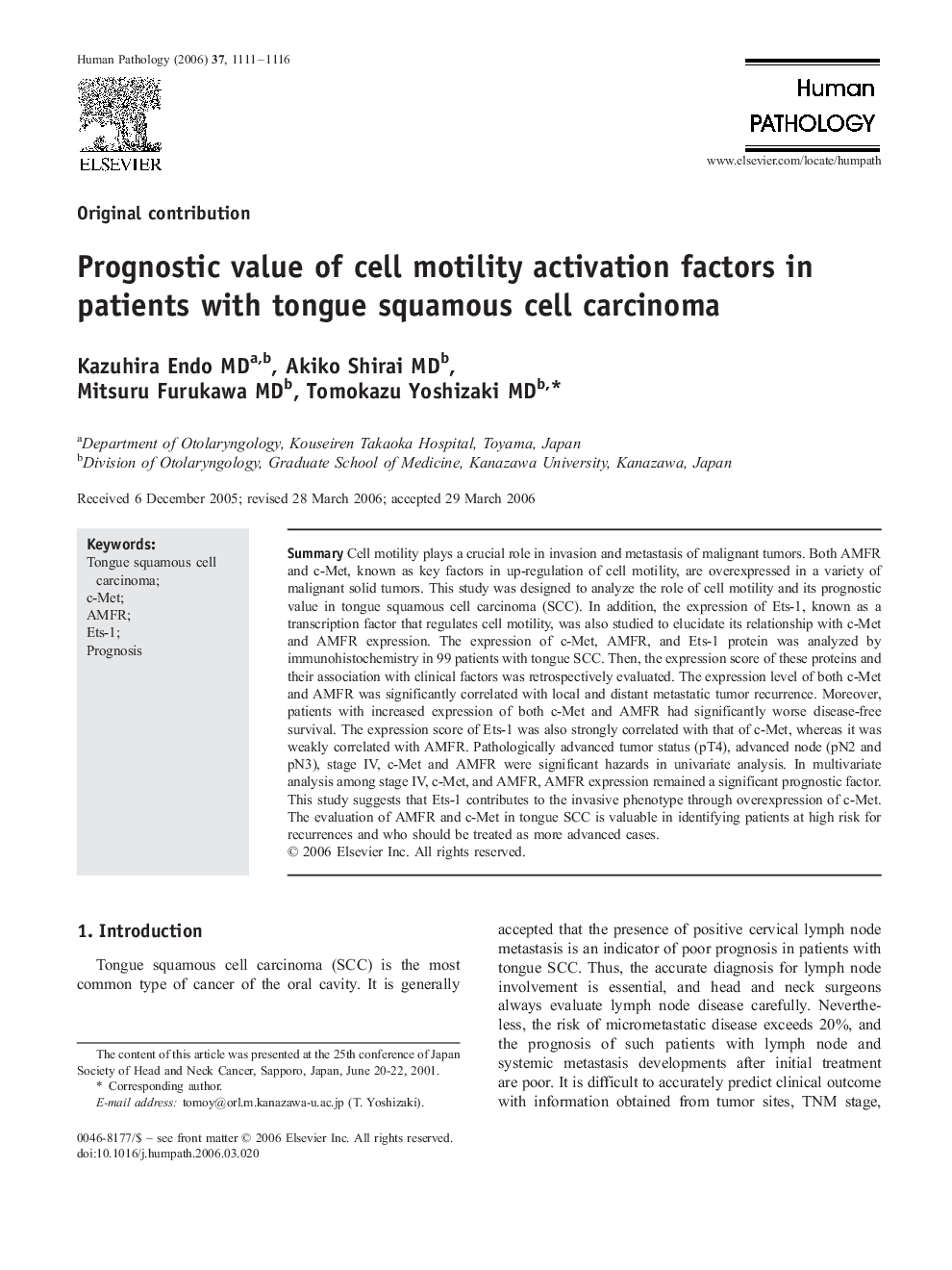| Article ID | Journal | Published Year | Pages | File Type |
|---|---|---|---|---|
| 4135709 | Human Pathology | 2006 | 6 Pages |
SummaryCell motility plays a crucial role in invasion and metastasis of malignant tumors. Both AMFR and c-Met, known as key factors in up-regulation of cell motility, are overexpressed in a variety of malignant solid tumors. This study was designed to analyze the role of cell motility and its prognostic value in tongue squamous cell carcinoma (SCC). In addition, the expression of Ets-1, known as a transcription factor that regulates cell motility, was also studied to elucidate its relationship with c-Met and AMFR expression. The expression of c-Met, AMFR, and Ets-1 protein was analyzed by immunohistochemistry in 99 patients with tongue SCC. Then, the expression score of these proteins and their association with clinical factors was retrospectively evaluated. The expression level of both c-Met and AMFR was significantly correlated with local and distant metastatic tumor recurrence. Moreover, patients with increased expression of both c-Met and AMFR had significantly worse disease-free survival. The expression score of Ets-1 was also strongly correlated with that of c-Met, whereas it was weakly correlated with AMFR. Pathologically advanced tumor status (pT4), advanced node (pN2 and pN3), stage IV, c-Met and AMFR were significant hazards in univariate analysis. In multivariate analysis among stage IV, c-Met, and AMFR, AMFR expression remained a significant prognostic factor. This study suggests that Ets-1 contributes to the invasive phenotype through overexpression of c-Met. The evaluation of AMFR and c-Met in tongue SCC is valuable in identifying patients at high risk for recurrences and who should be treated as more advanced cases.
